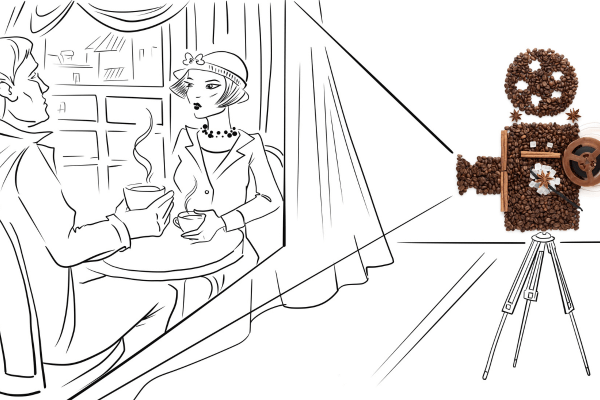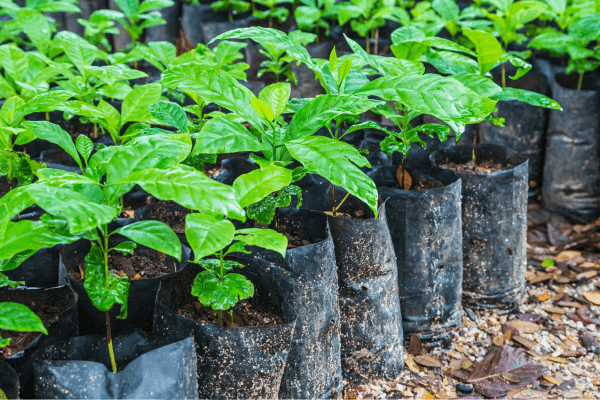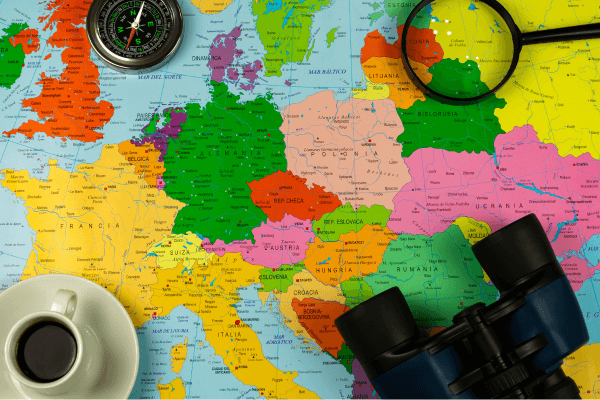Coffee and Psychology: Impact on Social Interaction
Coffee and Psychology – Coffee is a universally enjoyed beverage known for its stimulating effects and flavorful aroma. In addition to being a source of energy for many, coffee plays an intriguing and multifaceted role in social life. In recent years, interest in the relationship between coffee and social psychology has surged, leading to a range of exciting studies and research into how this beverage affects our consequences for others. In this article, we’ll embark on a journey to explore coffee’s impact on social interaction and discover how this all-too-common beverage can play a significant role in our human connections and relationships.
From informal settings such as coffee shops and gatherings with friends, to formal business situations or romantic encounters, coffee is often the link that brings people together. Its presence in social contexts leads us to question: does coffee influence our willingness to interact with others? Does it affect our perception of others and even our empathy? Social psychology offers a valuable theoretical basis for investigating these questions, allowing us to understand how coffee can shape our social behaviors and attitudes.
Furthermore, this study of the intersection between coffee and social psychology will also not reflect on the cultural habits and social traditions associated with coffee consumption in different parts of the world. How did this age-old drink become a symbol of hospitality, friendship and social connections? To what extent has coffee culture shaped our social practices and how might these practices vary across cultures? By working through these questions, we will be able to appreciate the deeper meaning of coffee in our daily lives and understand how a simple cup of coffee can be a powerful catalyst for developing our social inspirers.
Coffee and Psychology: How Drinking Affects Our Impressions of Others
Coffee’s impact on our impressions of others is an intriguing topic that has sparked interest in social psychology. Studies that demonstrate that the consumption of this drink can significantly influence the way the people around us fight. First, the caffeine present in coffee acts as a central nervous system stimulant, increasing alertness and attention. When we are more alert, we tend to notice more detail in individuals’ facial expressions, body language, and other nonverbal cues, which can improve our ability to interpret their emotions and intentions.
Furthermore, coffee can also have an impact on our emotional state, affecting our own disposition and mood. Research shows that caffeine can increase our positive state of mind, making us more tolerant and perceiving people in a more favorable and sympathetic way. This tendency can lead to more benevolent initial judgments, which can be particularly relevant in social gatherings and job interviews, where we form crucial first impressions. However, it is important to note that this positive effect can also become less effective if we consume coffee in excess, resulting in anxiety or irritability.
Furthermore, the cultural and perceived association of coffee as a social drink can subtly influence our impressions. In many cultures, the act of sharing a cup of coffee is seen as a friendly and welcoming gesture, establishing a climate of camaraderie and emotional connection. Thus, when we participate in social quiets involving coffee, our perception of others may be supported by this positive cultural expectation, leading us to interpret their actions and words more favorably. However, it is crucial to remember that social characteristics are complex and are influenced by a variety of factors, including past experiences, personality and context of the situation.
Another interesting aspect to be considered is the so-called “hot cup effect”. Research shows that the temperature of the beverage we hold in our hands can influence our impressions of others. When we hold a cup of hot coffee, we can experience a sense of physical comfort, which can be reflected in our social traits. This effect can be unconsciously interpreted as a sign of emotional comfort, leading us to perceive others in a more psychological and friendly way.
The social ritual of sharing a cup of coffee can promote a sense of community and belonging, which also affects our impressions of others. When we gather with friends or colleagues in a coffee shop, we are creating a shared space for informal socializing. This relaxed and casual environment can encourage more open and genuine communication, allowing people to feel more comfortable and autonomous. Consequently, our impressions of others in these circumstances may be more
This is positive as we engage in inspirational exchanges and strengthen our social relationships.
On the other hand, it is important to highlight that the impressions formed during coffee consumption may not be immutable. Research suggests that coffee’s influence on social institutions may be temporary and variable. Factors such as the amount of coffee consumed, the frequency of consumption and the individual characteristics of each person play a role in how this drink influences our impression of others. Therefore, although coffee can have a significant impact on our social emotions, its emotions are not definitive and can be modulated by several factors.
In short, coffee has been shown to exert a peculiar influence on our impressions of others. Whether through the mental and emotional stimulation provided by caffeine, the positive cultural association with sharing a cup of coffee, or even the physical sensation of warmth that accompanies holding it, this beverage appears to be affecting our social processes of perception. and judgment. However, it is essential to consider that social impressions are complex and cannot be reduced to a single factor. Coffee’s role is just one more element in a rich web of influences that shape the way we interact with and understand others.
Coffee and Psychology: Stimulation and Disposition for Social Interaction
The relationship between Coffee and Psychology, particularly regarding the stimulation of disposition for social interaction, is a captivating subject within social psychology. Caffeine, a primary component of coffee, exerts a stimulating influence on the central nervous system, enhancing alertness, concentration, and physical energy. These psychostimulant properties can significantly impact our inclination to engage socially. Coffee consumption, especially in social settings, often evokes feelings of increased vigor and readiness, facilitating more fluid and engaging interactions.
Moreover, caffeine’s positive effects on mood can further influence our emotional readiness for social interaction. Research indicates that caffeine may boost the production of neurotransmitters like dopamine and serotonin, promoting a sense of pleasure and well-being. Such effects can enhance the enjoyment of leisurely social gatherings, motivating individuals to actively seek out opportunities for social engagement. Additionally, caffeine’s ability to alleviate fatigue and drowsiness can amplify energy levels, prompting individuals to participate more actively in conversations and social activities.
Nevertheless, it’s crucial to acknowledge that caffeine’s impact on social disposition can vary from person to person. While some individuals may experience heightened mood and social engagement post-coffee consumption, others may exhibit heightened sensitivity to caffeine, leading to potential side effects such as jitteriness or anxiety. Furthermore, factors like caffeine dosage and timing of consumption can influence its effects on social disposition. For instance, excessive coffee intake or consumption near bedtime can disrupt sleep patterns, subsequently affecting one’s mood for social interactions the following day.
In conclusion, caffeine, inherent in coffee, plays a pivotal role in fostering a conducive mood for social interaction. Its stimulating effects on the central nervous system bolster alertness and physical vitality, thereby augmenting individuals’ willingness to partake in and enjoy social engagements more actively. Moreover, caffeine’s positive influence on emotional well-being enhances the overall satisfaction derived from social interactions. However, it’s imperative to recognize that the effects of caffeine are individualized and contingent upon factors like sensitivity, dosage, and timing of consumption. Striking a balance in caffeine intake is essential to reap its benefits while safeguarding overall health and well-being.
Coffee and Psychology: How Drinking Can Influence Business Negotiations and Meetings
Coffee plays a significant role in formal settings such as business meetings and negotiation meetings. In addition to its role, accidentally, as a complimentary drink offered to participants, coffee can have subtle but important effects on the dynamics of this form. Studies have shown that the act of offering coffee can be seen as a hospitable and friendly gesture, helping to create a more relaxed and inspired environment for open and productive communication. In business meetings, coffee can serve as a kind of “icebreaker” and establish an initial connection between those involved, which can facilitate building professional relationships and building mutual trust.
Another important aspect is that coffee can influence cognition and decision making
during the professional process. The caffeine present in coffee is known for its stimulating effects on the central nervous system, increasing alertness and concentration. In consumption, where the ability to stay focused and process information efficiently is crucial, coffee can offer an advantage by improving participants’ cognitive ability. This can lead to more differentiated discussions and more careful analysis of approved proposals, allowing the parties involved to make more pressured and considered decisions.
However, it is important to use coffee sparingly in formal settings. Too much caffeine can lead to increased anxiety and nervousness, which can impair your ability to make logical, rational decisions. Additionally, coffee can have diuretic effects, which can result in frequent bathroom breaks, interrupting the flow of the negotiation. Therefore, it is essential that participants are aware of coffee consumption and consider the appropriate amount and timing to avoid induced negative effects.
In addition to the aforementioned aspects, the presence of coffee in formal settings can play a symbolic and culturally significant role. In many business cultures, the act of sharing a cup of coffee during a meeting is more than just a courtesy; is a ritual that represents the building of connections and trust between participants. Coffee can act as a facilitator to create a sense of community, uniting people around a shared activity, which can improve negotiation dynamics by creating a more friendly and cooperative environment.
Another interesting perspective is that the choice of drink can also influence the impressions that participants have of each other. Coffee, often seen as a drink that awakens energy and focus, can project an image of professionalism and development. Those who opt for coffee during a formal meeting can be perceived as thoughtful and serious individuals about the business at hand. On the other hand, other beverages, such as tea or water, may be associated with more relaxed or less engaged behavior. These subtle observations can affect how the participants are seen and how their words and actions are interpreted during the negotiation.
It is also important to consider that, in some cultures and contexts, the absence of coffee or the refusal to accept an offered cup can be interpreted as a lack of interest or disrespect. Therefore, the presence of coffee can be seen as a sign of mutual respect and adherence to social norms protected in certain business environments.
In conclusion, coffee plays a multifaceted and significant role in formal business environments, influencing participants’ social emotions, cognition and transcription. In addition to serving as a courtesy and facilitator of connections, coffee can affect participants’ perceived image and play a symbolic role in building relationships of trust and respect. However, it is essential that its consumption is balanced, to avoid negative effects and ensure that coffee contributes positively to the environment and dynamics.
Coffee and Psychology: The Role of Coffee in Romantic Encounters and Relationships
Coffee has been linked to moments of intimacy and emotional connection, playing a significant role in romantic encounters and relationships. On initial dates, the act of sharing a cup of coffee can create a relaxed and welcoming atmosphere, providing a safe space for individuals to get to know each other better. Exchanging personal stories and experiences over a cup of coffee can facilitate the establishment of a deeper emotional connection, allowing participants to feel more comfortable expressing their feelings and interests.
Additionally, the caffeine in coffee can help increase alertness and physical energy, which can be beneficial on romantic dates. This increase in energy can lead to a greater willingness to participate in activities together, stimulating the creation of shared memories and strengthening emotions. Caffeine can also positively influence mood, helping to create a more positive and relaxed atmosphere during your date. These factors combined can contribute to the formation of a deeper and more genuine emotional connection between potential partners.
In the context of long-term relationships, coffee can play a role in enhancing intimacy. The routine of sharing a cup of coffee throughout the day can become a ritual of connection and union between the couple, providing moments of tranquility and affection in the midst of the obligation of everyday life. Also, coffee can be used as a way of expressing care and attention by making a cup for your partner, showing affection through
a simple but significant act. These small gestures of affection can strengthen emotional feelings and promote a sense of closeness and security in the relationship.
However, it is important to recognize that coffee is not the only factor that influences intimacy in romantic and affective encounters. The emotional connection between two people is influenced by a variety of factors, including compatibility, communication, shared interests and mutual empathy. Coffee can be seen as an enabler or complement to these elements, but it should not be considered an exclusive determinant of intimacy.
In summary, coffee plays a significant role in romantic and affective encounters, providing a relaxed environment conducive to creating emotional connections. The act of sharing a cup of coffee can pave the way for deeper and more intimate conversations, allowing participants to get to know each other better. In addition, the caffeine present in coffee can increase alertness and physical energy, confident for the willingness to carry out activities together. In long-term relationships, coffee can become a bonding and bonding ritual, reinforcing the emotional bonds between the couple. However, it is important to remember that coffee is just one element in a series of factors that influence intimacy, and true emotional connection is built through a combination of affection, empathy and genuine communication, regardless of the presence of coffee. However, when shared in moderation and enjoyed with conscience, coffee can become an additional element that enriches these moments of intimacy, making them even more special and experience for the partners involved.
Coffee and Psychology: How This Millennial Beverage Shaped Social Practices
Coffee and Psychology have long been intertwined in the fabric of human social interaction. From its origins in ancient coffee houses to its ubiquitous presence in modern cafes, coffee has served as a catalyst for meaningful connections and conversations among individuals from diverse backgrounds. The communal atmosphere of coffee shops, fostered by the aroma of freshly brewed coffee and the hum of animated discussions, creates an ideal setting for interpersonal engagement and the exchange of ideas.
Moreover, Coffee and Psychology intersect in the rituals and ceremonies surrounding coffee consumption. Whether it’s the ceremonial preparation of coffee in Ethiopian culture or the informal coffee breaks during business meetings, these rituals serve as powerful symbols of connection and camaraderie. The act of sharing a cup of coffee transcends linguistic and cultural barriers, facilitating rapport and understanding between people from different walks of life.
In addition to its social significance, Coffee and Psychology play a pivotal role in diplomatic exchanges and international relations. The offering of coffee as a gesture of hospitality and goodwill has long been a diplomatic tradition, symbolizing a desire for mutual respect and cooperation. In diplomatic circles, the shared experience of enjoying a cup of coffee fosters an atmosphere of openness and dialogue, paving the way for meaningful exchanges and diplomatic breakthroughs.
Overall, Coffee and Psychology underscore the profound impact of this age-old beverage on human social dynamics. Whether as a symbol of hospitality, a facilitator of cultural exchange, or a catalyst for diplomatic dialogue, coffee continues to shape our interactions and relationships in profound ways. By exploring the intricate interplay between coffee consumption and psychological factors, we gain deeper insights into the role of this beloved beverage in fostering connections and fostering a sense of community across the globe.
Coffee and Psychology: Conclusion
Coffee and Psychology – Coffee has undoubtedly left an indelible mark on our social practices and interactions, shaping the way we connect and communicate with one another. From its humble beginnings as a symbol of hospitality in the Middle East to its global embrace in modern coffee shops, this beverage has transcended cultural boundaries to become a universal language of camaraderie and connection. The emergence of coffee houses as bustling hubs of intellectual discourse and social exchange underscores its profound influence on fostering community and dialogue among diverse groups of people.
Moreover, the act of sharing a cup of coffee has evolved into a cherished social ritual, uniting individuals across cultures and generations in moments of warmth and conviviality. Whether it’s the Ethiopian coffee ceremony or the casual coffee breaks during business meetings, these rituals serve as potent reminders of coffee’s power to forge bonds and strengthen relationships. Furthermore, in diplomatic circles, coffee often serves as a diplomatic icebreaker, fostering goodwill and understanding between nations through its simple yet meaningful gesture of hospitality.
As we delve deeper into the intersection of Coffee and Psychology, we uncover the intricate ways in which this beverage influences our social behaviors and attitudes. From enhancing alertness and mood to facilitating deeper emotional connections, coffee exerts a profound impact on our perceptions of others and our willingness to engage in social interactions. Moreover, the cultural significance of coffee as a symbol of hospitality and community underscores its role in shaping our social practices and traditions across different cultures.
In conclusion, Coffee and Psychology converge to illuminate the multifaceted role of coffee in our social lives. Beyond its stimulating effects and aromatic allure, coffee serves as a catalyst for meaningful connections and enriching social experiences. By understanding the interplay between coffee consumption and psychological factors, we gain insight into the deeper meanings behind our coffee rituals and the profound influence they have on fostering human connection and solidarity across the globe.
See More: https://amoartesanato.com/






